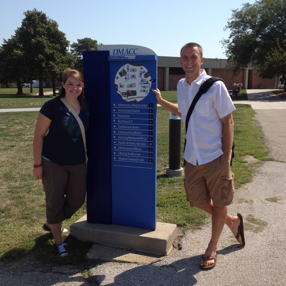As apostolic leaders we get fired up every time we meet students who want to step out in mission. We want to help them vision for what God could do in their lives and their friends’ lives. We want to go with them into their corners of the campus and help them plant the gospel there!
But we’ve become deeply aware during this season of ministry that we can’t do life on life discipleship with everyone. We long to see a generation of college students mobilized for mission on Nebraska campuses, but we’ve wrestled with the question of how we can empower every student we work with to grow in lives of missional discipleship.
Here’s our attempt at putting together a simple, reproducible tool to help students develop some rhythms of missional discipleship. There are three areas: Up, In, and Out and each one has a weekly and a daily practice. Almost none of this is original on it’s own. We’ve borrowed and combined ideas from Michael Frost, Alan Hirsch, and Mike Breen. Check it out:












